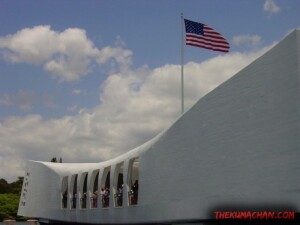Each year, Americans unite on the last Monday of May to honor Memorial Day—a significant occasion dedicated to remembering those who perished while serving in the military. It stands as a time for national reflection, gratitude, and unity as the nation acknowledges the ultimate sacrifices made by its valiant service members throughout history. Although modern observances often include parades and barbecues, the historical profundity of Memorial Day beckons a closer look.
Origins of Memorial Day: A Historical Perspective
The genesis of Memorial Day is deeply intertwined with the aftermath of the Civil War—a conflict that inflicted unparalleled loss upon the United States. In its devastating wake, diverse commemorative traditions emerged to honor fallen soldiers. Among these was Decoration Day, marked by the adorning of soldiers’ graves with flowers, flags, and wreaths.
The inaugural observance of Decoration Day occurred on May 1, 1865, in Charleston, South Carolina. This ceremony was poignantly organized by formerly enslaved individuals intent on honoring Union soldiers who perished in captivity. Nevertheless, the town of Waterloo, New York is recognized as the official birthplace of Memorial Day, following a community-wide commemoration on May 5, 1866.
General John A. Logan of the Northern Civil War veterans organization declared a nationwide day of remembrance for May 30, 1868, hence naming it Decoration Day. Selected for its non-affiliation with any particular battle, this date symbolized a day to embellish comrades’ graves who had fallen defending the Union.
Expansion of Remembrance
In subsequent years, Decoration Day’s remit expanded beyond the Civil War to include soldiers fallen in later conflicts such as World War I, World War II, the Korean War, and the Vietnam War. By 1971, an act of Congress officially established Memorial Day as a national holiday, relocating its observance to the last Monday of May to afford federal employees a long weekend.
The Core Purpose of Memorial Day
Memorial Day extends far beyond just a respite from work or the ceremonial ushering in of summer. At its heart lies a solemn duty—to remember and mourn the heroes who sacrificed their lives for their country. It invites Americans to pause and honor the values that underscore such sacrifice: duty, service, and patriotism. This sacred day not only elicits personal grief but also promotes collective remembrance, underpinning our national identity and shared duty in safeguarding liberty.
Memorial Day provides an invaluable pedagogical moment for younger generations—instilling values of gratitude, remembrance, and civic duty that form pillars of societal responsibility.
Traditional Observances
Throughout the nation, diverse traditions echo Memorial Day’s message. Many visit cemeteries and memorials to honor fallen military personnel by placing flags and floral tributes on their graves. Volunteers particularly mark national cemeteries with American flags as potent symbols of honor.
Noteworthy among contemporary traditions is the National Memorial Day Concert held on the United States Capitol’s west lawn—bringing together performers, military officials, and citizens in collective homage.
Communities also organize parades replete with marching bands, military contingents, and veteran groups—publicly recognizing military sacrifice through ceremonial pageantry.
A recently established custom is the National Moment of Remembrance, sanctioned by Congress in 2000. At 3:00 p.m. local time on Memorial Day, Americans pause for a minute to reflect on military sacrifices—a unifying moment transcending differences to honor collective legacy.
Balancing Commemoration and Celebration
Modern observance sometimes characterizes Memorial Day as summer’s informal commencement, involving family gatherings for barbecues and outdoor leisure. Although such festivities may appear to dilute solemnity, they symbolize the liberties preserved by those fallen soldiers—providing cause for celebration within their shadowed legacy.
Navigating the delicate balance between remembrance and celebration enriches Memorial Day’s holistic meaning. By engaging in commemorative ceremonies alongside joyous activities, Americans affirm both remembrance of past sacrifices and gratitude for present freedoms.
Ultimately, through Memorial Day’s solemn tributes and celebrations, the nation embodies its enduring commitment to liberty and justice—acknowledging and honoring those whose ultimate sacrifices forged such enduring values.

